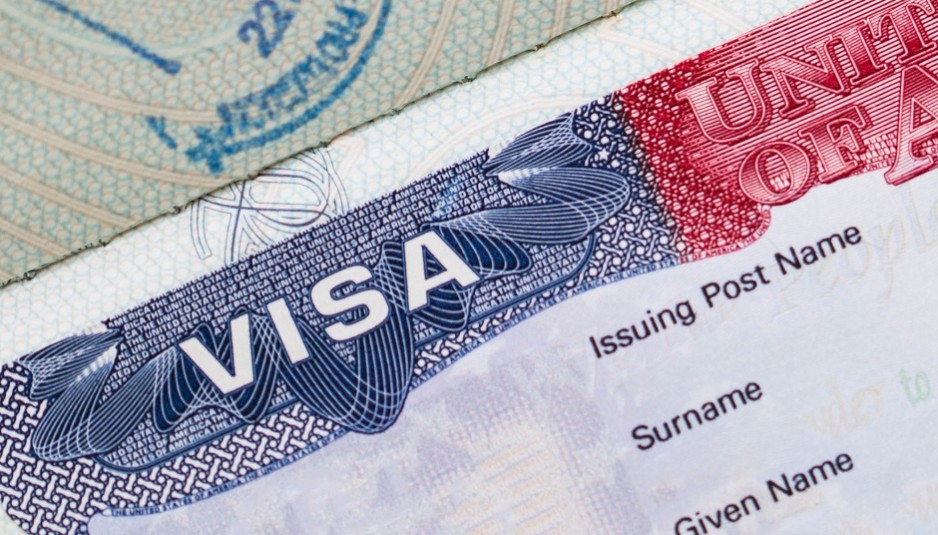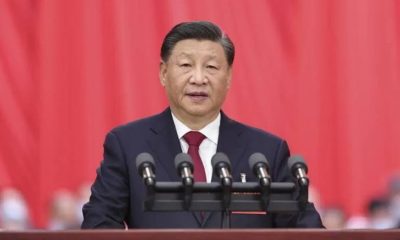International
US signals support for possible ICC sanctions over Israel warrants

US signals support for possible ICC sanctions over Israel warrants
US Secretary of State Antony Blinken has suggested he will work with lawmakers on potential sanctions against the International Criminal Court as its prosecutor seeks arrest warrants for senior Israeli officials.
Mr Blinken told a congressional hearing he was “committed” to taking action against the “profoundly wrong-headed decision”.
His comments come amid a Republican push to impose sanctions on ICC officials, which may see a vote as soon as this week.
The United States is not a member of the court but has backed previous prosecutions, including the ICC’s arrest warrant for Russian President Vladimir Putin over the war in Ukraine.
At a Tuesday hearing of the Senate Foreign Relations Committee, James Risch, its top Republican, asked whether Mr Blinken would support legislation to address the ICC “sticking its nose in the business of countries that have an independent, legitimate, democratic judicial system”.
“We want to work with you on a bipartisan basis to find an appropriate response. I’m committed to doing that,” the secretary of state said.
Mr Blinken said “there’s no question we have to look at the appropriate steps to take to deal with, again, what is a profoundly wrong-headed decision”.
The ICC’s chief prosecutor Karim Khan announced on Monday that he had applied for arrest warrants against Israel’s Prime Minister Benjamin Netanyahu and Defence Minister Yoav Gallant.
READ ALSO:
- Why 600,000 Kenyans stopped using mobile money in 2023 – Statistics bureau
- Police rescue kidnapped women, child in Kwara
- Ekiti teacher jailed 15 years for raping minor
Mr Khan is also seeking arrest warrants for three Hamas officials – Yahya Sinwar, its leader in Gaza, Mohammed Deif, the commander of its Qassam Brigades military wing, and Ismail Haniyeh, the head of its political bureau.
US President Joe Biden said on Monday it was “outrageous” to apply for arrest warrants. There was “no equivalence – none – between Israel and Hamas”, he added.
Mr Blinken’s remarks echoed the broader pushback in Washington over the court’s decision.
At least two measures imposing sanctions on the ICC had already been introduced in Congress as the court ramped up its inquiry into Israel’s handling of the war in Gaza.
Support on Capitol Hill appears to be coalescing around a bill launched earlier this month by Texas Republican Chip Roy.
The Illegitimate Court Counteraction Act would target ICC officials involved with the case by blocking their entry to the US, revoking any current US visas they hold, and prohibiting them from any property transactions within the country – unless the court ceases its cases against “protected persons of the United States and its allies”.
At least 37 lawmakers in the Republican-led House are now co-sponsoring the legislation, including Elise Stefanik, the chamber’s third highest-ranking Republican.
Ms Stefanik is fresh off a visit to Israel, where she met with Mr Netanyahu, spoke at the Knesset and met with the families of hostages trapped in Gaza.
The court “equivocates a peaceful nation protecting its right to exist with radical terror groups that commit genocide”, she told the BBC in a statement.
Andy Barr of Kentucky, another Republican supporting the bill, said further pursuit of the ICC’s case against Israel must “be met with the full force of our sanctions”.
Less clear, however, is whether Democratic lawmakers will get behind the effort.
The party’s moderate and liberal wings have grappled with Mr Biden’s Israel policy for months, as young progressive voters have pushed the president to more sharply criticise the Netanyahu government’s operations in Gaza.
READ ALSO:
- Russian forces simulate nuclear drills near Ukraine
- Shettima emphasizes implementation of Tinubu’s 8-point agenda at APC policy roundtable
- Woman arrested in Gombe for abuse of naira notes
Ohio’s Greg Landsman, one of a few Democrats who voted last week to reverse Mr Biden’s pause on a weapons shipment to Israel, told the BBC he hopes Congress will issue a bipartisan rebuke of the ICC “to send the strongest message possible”.
“The decision [to seek arrest warrants] will only further inflame tensions and divisions, embolden anti-Israel conspiracies, and ultimately, it will undermine the credibility of the ICC,” he said in a statement.
Republican House Speaker Mike Johnson urged Chuck Schumer, the Senate’s top Democrat, to sign a letter on Tuesday inviting Mr Netanyahu to address a joint meeting of Congress.
In March, Mr Schumer called for new elections in Israel but he described the ICC’s case on Monday as “reprehensible”.
Sen Chris Coons, a Democrat from Delaware and member of the Senate Foreign Relations Committee, told the BBC that he was unsure about moves to sanction ICC officials.
“I’m not there yet imposing sanctions on the ICC, as opposed to looking to see whether the off ramp of a ruling by the judges of the ICC that they’re not going to proceed with warrants is something I think may come in the next couple of days,” the Democrat said.
But Mr Coons added that he is discussing taking action with his committee colleagues from both parties.
But some left-wing Democrats have expressed their support for the ICC’s actions.
Minnesota Congresswoman Ilhan Omar said the court’s allegations are “significant” and the US must support its work as it has done on past occasions, including in the case of Libya.
“The application for arrest warrants is merely the beginning of a judicial process,” she wrote in a statement on Monday.
“The ICC has been a functioning court – it has seen convictions, acquittals, and dismissals, as we would expect from an impartial and non-political judicial body.”
It remains unclear whether any sanction efforts have yet gathered the support needed to advance through either the Republican-led House or the Democrat-controlled Senate.
White House Press Secretary Karine Jean-Pierre told reporters Tuesday that administration officials were discussing “next steps” with lawmakers.
Watching from across the world in Russia, Kremlin spokesman Dmitry Peskov told reporters that its adversary’s “attitude and willingness to use sanctions methods even against the ICC” was “more than curious”.
US signals support for possible ICC sanctions over Israel warrants
International
US releases 41 countries granted 90-day entry without visas (full list)

US releases 41 countries granted 90-day entry without visas (full list)
Citizens from 43 countries can now visit the United States for up to 90 days without a visa, thanks to the Visa Waiver Program (VWP).
However, travellers must meet specific requirements and obtain approval through the Electronic System for Travel Authorization (ESTA) before boarding their flight.
ESTA is an online system managed by US Customs and Border Protection that determines eligibility for visa-free travel under the VWP. It’s important to note that the stay must not exceed 90 days, and travelers must apply for ESTA in advance.
The VWP covers travel for tourism or business purposes. Participating countries include the United Kingdom, Australia, France, Germany, Japan, South Korea, and Singapore, among others. Countries like Nigeria and India are not part of the program.
Even if you’re a citizen of a VWP country, you will not qualify for ESTA if:
You have visited or were present in North Korea, Iran, Iraq, Libya, Somalia, Sudan, Syria, or Yemen on or after March 1, 2011.
READ ALSO:
- 2025 UTME: Muslim students kick as JAMB officials seize candidates’ hijab at Caleb Varsity UTME centre
- Pep Guardiola, wife to ‘give marriage a second chance’ after Barcelona reconciliation meeting
- Groom cancels wedding, marries another lady same date, venue
1. You have visited or were present in Cuba on or after January 12, 2021.
2. You hold dual nationality with Cuba, North Korea, Iran, Iraq, Sudan, or Syria.
3. If any of the above applies to you, you must apply for a standard B-1/B-2 visitor visa instead of using the VWP.
1. Andorra
2. Australia
3. Austria
4. Belgium
5. Brunei
6. Chile
7. Croatia
8. Czech Republic
9. Denmark
10. Estonia
11. Finland
12. France
13. Germany
14. Greece
15. Hungary
16. Iceland
17. Ireland
18. Israel
19. Italy
20. Japan
21. Latvia
22. Liechtenstein
23. Lithuania
24. Luxembourg
25. Malta
26. Monaco
27. Netherlands
28. New Zealand
29. Norway
30. Poland
31. Portugal
32. Qatar
33. Republic of Korea (South Korea)
34. Romania
35. San Marino
36. Singapore
37. Slovakia
38. Slovenia
39. Spain
40. Sweden
41. Switzerland
42. Taiwan
43. United Kingdom
US releases 41 countries granted 90-day entry without visas (full list)
International
Thousands pay tributes as Pope Francis’ body lies in state at St. Peter’s Basilica

Thousands pay tributes as Pope Francis’ body lies in state at St. Peter’s Basilica
Vatican City was filled with the sounds of bells and heartfelt chants on Wednesday morning, as thousands of mourners gathered to honor the late Pope Francis.
In a moving and solemn procession, his simple wooden coffin was carried through St. Peter’s Square, marking the beginning of final rites for the beloved pontiff.
The procession began at the Domus Sancta Marta, the residence where Pope Francis passed away, and continued toward St. Peter’s Basilica. There, his body will lie in state until his funeral, scheduled for Saturday.
Two long lines of cardinals and Vatican officials escorted the coffin, while faithful from around the world looked on in prayer and reverence.
Dressed in a red chasuble and a white miter, with a rosary gently wrapped around his fingers, Pope Francis was honored with continuous applause as Swiss Guards solemnly accompanied the casket through the square.
Teresa Piuvano, a New Jersey resident who has been in Rome since March volunteering at Vatican events for the Jubilee year, saw Francis’ appearances on Palm Sunday and Easter Sunday. Easter, she said, “was the most special. I think he wanted to do that to say goodbye to the people because he rode around the whole square even though he was very ill.”
Inside the basilica, the pope was laid on a simple podium instead of the wooden structure, called a catafalque that has traditionally held a pope’s coffin as he lies in state. The ceremony that concluded the procession, led by Cardinal Kevin Farrell, who as camerlengo is charged with overseeing the logistics of the pope’s funeral, referred to Francis in humble terms such as “bishop” and “pastor.”
READ ALSO:
- Rivers: Tinubu set to emergency rule after meeting Fubara
- NNPCL: Protesters storm AGF office, demand probe of Mele Kyari
- Fresh herders’ attack claims 11 lives in Benue
“Dearest brothers and sisters, with great emotion we accompany the mortal remains of our Pope Francis into the Vatican basilica where he often exercised his ministry as the bishop of the church that is in Rome and as pastor of the universal church,” Farrell said in the prayer service.
After the death of Pope Emeritus Benedict XVI, Francis changed the protocol for papal funerals to streamline and simplify the procedures. The pope wanted his own funeral to reflect the life of a pastor and not of a powerful king or politician, he said in interviews.
After the ceremony, cardinals proceeded to bow one by one in front of the coffin before the mourners lined up in the square were admitted.
Nearly 20,000 people visited the basilica yesterday, according to the Vatican, which added that it would ensure that all who wish to pay their final respects to the pope have a chance by staying open after midnight if necessary.
Second General Congregation of Cardinals held in the Vatican
The second General Congregation of Cardinals began yesterday afternoon in the Synod Hall at about 5:00 PM, and ended at 6:30 PM.
According to the Holy See Press Office, 103 cardinals were present. They began the meeting with the ‘Veni, Sancte Spiritus’ prayer, and then with a prayer in suffrage of Pope Francis.
The Cardinals who were not present at Tuesday’s General Congregation were sworn in.
The programme of the Novemdiales, the ancient nine-day period of mourning for the Pope, was approved.
The next General Congregation will be today at 9:00 AM.
At the first General Congregation, held on Tuesday morning, the Cardinals decided to suspend all scheduled beatifications until the new Pope can approve them.
Moreover, in accordance with the norms of Universi Dominici Gregis, a commission of three Cardinals was selected by lot to assist the Camerlengo in the governance of the Church during the sede vacante.
These three Cardinals represent the three orders of the College of Cardinals and are replaced every three days. The first group of three Cardinals chosen was Pietro Parolin (episcopal order), Stanisław Ryłko (presbyteral order), and Fabio Baggio (diaconal order).
The Holy See Press Office noted that around 20,000 people had paid their respects to the late Pope Francis as of 7:30 PM on Wednesday evening.
Why King Charles isn’t allowed at pope’s funeral
Prince William will be traveling to the Vatican to attend the funeral of Pope Francis on behalf of the British royal family later this week. And if you’re wondering why King Charles isn’t going, he literally isn’t allowed.
Royal expert Katie Nicholl writes in Vanity Fair that King Charles “will not travel to the Vatican, in accordance with protocol and precedence which dictates that the Sovereign does not attend funerals, Buckingham Palace has confirmed.” And FYI, this isn’t the first time an heir has attended the funeral of a pope on behalf of the sovereign—back in 2005, then-Prince Charles attended Pope John Paul II’s funeral instead of Queen Elizabeth.
That said, King Charles did visit the pope just a few days before his recent passing, and he released a statement after his death.
Thousands pay tributes as Pope Francis’ body lies in state at St. Peter’s Basilica
International
UK records over 22,000 asylum-seeking Nigerians

UK records over 22,000 asylum-seeking Nigerians
The United Kingdom Home Office received 22,619 asylum petitions from Nigerian nationals between 2010 and 2024.
Nigerians accounted for one in every 30 UK asylum claims over the time, ranking 11th in the Home Office’s recently released year-end asylum and resettlement figures.
According to the Home Office, over two times as many Nigerians (2,841) requested asylum in 2024 than in 2023 (1,462).
Overall, 108,138 people applied for asylum in the UK in 2024, representing a 378 per cent increase from 2010. The majority were first-time claims by South Asian and Middle Eastern nationals.
Iran topped the chart with 75,737, perhaps pushed by the rising persecution of dissidents by the Iranian regime.
Pakistan trailed far behind with 57,621. In 2024, 10,542 Pakistanis sought asylum in the UK, prompted by post-election upheaval, rising inflation, and an increase in blasphemy cases, which human rights groups argue provide strong grounds for protection claims.
Afghanistan has received 54,363 asylum petitions since 2010. In 2024, 8,508 Afghans sought sanctuary in the United Kingdom, a development that experts suggest is a continuation of the Taliban’s ouster of the Karzai administration in 2022.
That year, 11,358 Afghans applied for asylum in the United Kingdom, with 9,710 applications the following year.
Others include Albania (50,944), Iraq (45,711), Eritrea (37,687), Syria (34,997), and Bangladesh (31,744). Asylum seekers from Bangladesh increased from 5,097 in 2023 to 7,225 in 2024. The rise corresponded with the removal of previous Prime Minister Sheikh Hasina.
READ ALSO:
- Driver crushes one-year old boy to death in Ekiti
- Bring your children to compete with mine, MC Oluomo challenges those mocking his spoken English
- Insecurity: Presidency questions push for state police, accuses govs of not doing much
Sudan and India complete the top ten, with 30,897 and 30,179, respectively.
Nigeria’s 22,619 filings are just ahead of Sri Lanka’s 22,059 and surpass Vietnam, China, and Turkey. Brazil, Kuwait, Yemen, Colombia, and Jordan were at the bottom of the list, with each providing fewer than 6,500 claims.
Analysts attribute Nigeria’s rise on the list to tough conditions such as insecurity, bandit assaults, abduction, and a collapse in household purchasing power following the naira’s devaluation in 2023.
In a conversation with our correspondent, Charles Onunaiju, Research Director, Centre for China Studies, Abuja, stated, “We face a difficulty. Nigeria is becoming unfriendly, particularly for young people with limited opportunities, and there is a desperate desire to travel overseas.
According to local reports, young professionals who previously entered the UK on skilled worker visas are increasingly hedging their bets by applying for asylum once there; others arrive irregularly via continental Europe, citing kidnapping threats and communal attacks in their affidavits.
According to the reports, in most cases, petitioners also claim political persecution under Nigeria’s wide cybercrime legislation or discrimination based on sexual orientation—both of which are protected under the Refugee Convention.
According to the Home Office’s website, an asylum seeker must demonstrate a “well-founded fear of persecution” because of their race, religion, nationality, political opinion, or membership in a certain social group.
The Home Office determines the initial decisions, and negative rulings can be challenged in the Immigration and Asylum Chamber.
In theory, the Illegal Migration Act of 2023 makes people who travel through a safe third nation inadmissible.
However, the UK government’s proposed removal process, particularly its contract with former Prime Minister Rishi Sunak to transfer claimants to Rwanda, is still enmeshed in legal obstacles.
As a result, the majority of 2024 and 2025 arrivals will continue to use the existing system.
Dr Aliyu Ilias, an Abuja-based development economist, told The PUNCH that as more Nigerians leave and stay permanently overseas, the country will have less trained labour.
He stated that with most Nigerians confronting both economic headwinds and deteriorating security at home, the British asylum route, however uncertain, still appears to offer a better prospect.
Ilias explained, “It’s definitely a cause of concern because this includes our professionals who are moving, and it takes a whole lot to train these professionals.
“In the medical sector, Nigeria subsidises a lot to get people trained. You cannot get trained as a medical doctor or an engineer abroad for a cheaper cost compared to what we get in Nigeria.
“So, it is total brain drain in the long run, and for the economy, it is reducing our GDP. The appalling part is that most of our Nigerian brothers and sisters who go out do not return. They get permanent residency, and they become valuable to the immediate country.”
UK records over 22,000 asylum-seeking Nigerians
-

 metro23 hours ago
metro23 hours agoOmokri : How Tinubu’s political mastery started with Abiola, says El-Rufai, Obi’s forces can’t stop him
-

 Education17 hours ago
Education17 hours agoJAMB officials seize candidates’ hijab at Caleb varsity, Muslim students kick
-

 Entertainment2 days ago
Entertainment2 days agoP-Square: Jude Okoye freed after two months detention
-

 International17 hours ago
International17 hours agoUS releases 41 countries granted 90-day entry without visas (full list)
-

 Politics2 days ago
Politics2 days agoLabour Party collapses into APC in Plateau
-

 Business3 days ago
Business3 days agoNigeria’s gas production increases by 15.6% to 227,931.65 mscf
-

 metro24 hours ago
metro24 hours agoGroom cancels wedding, marries another lady same date, venue
-

 Entertainment3 days ago
Entertainment3 days agoTuface named technical adviser to Benue governor









